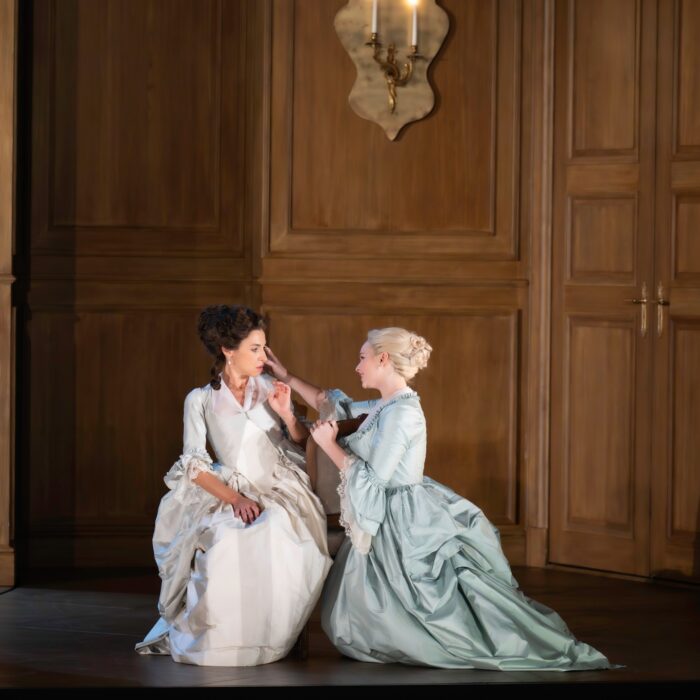
Opera Meets Film: The Marx Brothers’ Iconic ‘A Night At the Opera’
By David Salazar“Opera Meets Film” is a feature dedicated to exploring the way that opera has been employed in cinema. We will select a section or a film in its entirety, highlighting the impact that utilizing the operatic form or sections from an opera can alter our perception of a film that we are viewing. This week’s installment will take a look at the iconic “A Night at the Opera” featuring the Marx Brothers.
The irony of “A Night at the Opera” is that there are technically TWO nights at the opera in the famed film starring the Marx Brothers, but that might just be the whole point – this film is all about subversion and reshaping meaning on a textual level, and beyond.
So let’s talk about the text first.
The two operas featured are amongst the most violent tragedies in the opera canon – “Pagliacci” and “Il Trovatore” – but we never really witness their violent natures at all. Of “Pagliacci” we get an excerpt from the opening chorus where everyone is merry about the arrival of the performance troupe, followed by Nedda’s aria. We don’t even get the tragic “Vesti la Giubba,” even though Groucho Marx (as Mr. Driftwood) sings it in one sequence while he is being wheeled around a ship on a trunk. With “Il Trovatore,” we get Azucena’s “Stride la vampa” and Manrico’s “Di Quella Pira,” but those scenes serve as backdrops for comedic stunts; the music and its dramatic purpose thus don’t serve as much more than background noise to the Marx Brothers’ antics.
But the biggest subversion of all comes at the film’s climax when the two lovers Rosa and Riccardo get a chance to sing the “Miserere” together. This piece, which might just be one of the darker sections of Verdi’s tragedy, showcases Leonora anticipating Manrico’s upcoming death. As she hears people mourn and pleading for the souls of those who will die, she also hears Manrico’s plea “Ah! Che la morte ognora” for her to never forget him. And while the passage vaguely symbolizes the two lovers’ own plight throughout the film (Riccardo has been living in the shadow of a rival tenor while Rosa has done her utmost to help his career), it really contrasts tremendously with the actual situation onstage. Riccardo and Rosa are onstage to save the performance; this is a celebration for them.
As framed (and likely hoping audiences wouldn’t be privy to “Il Trovatore” itself) the “Miserere” is framed as a love duet in the film with the two ultimately victorious by the end of it. This is further emphasized by the fact that after the passage, they are beckoned to come back on stage and provide an encore of that very piece to even greater applause. And what’s more, the film actually ends on the applause, one of the most tragic pieces Verdi wrote turned into a celebration of love and victory.
In a strange way, it works within the framework of a Marx Brothers film – they constantly subvert every subject they take on and transforming a tragic opera into a farce romantic comedy undeniably suits that artistic aim.
Beyond the Text
It is worth noting that this film represented a stylistic shift overall for the Marx Brothers toward more structured story telling and in this context, the film itself features some operatic assembly between the Marx Brothers’ set pieces and even a sequence of musical numbers at the very middle of the film (there are other musical numbers in other sections of the film, and even a lover’s leitmotif “Alone” that is hauntingly similar to Manrico’s “Ah! Che la morte ognora”).
And to top it all off, the three opera stars showcased in the film were actually played by actors with operatic training. Kitty Carlisle and Allan Jones, who play Rosa and Riccardo actually sang their respective excerpts in the film, though Walter Woolf King, who plays the arrogant Rodolfo Lassparri, was voiced by tenor Tandy MacKenzie; King was a trained baritone.


